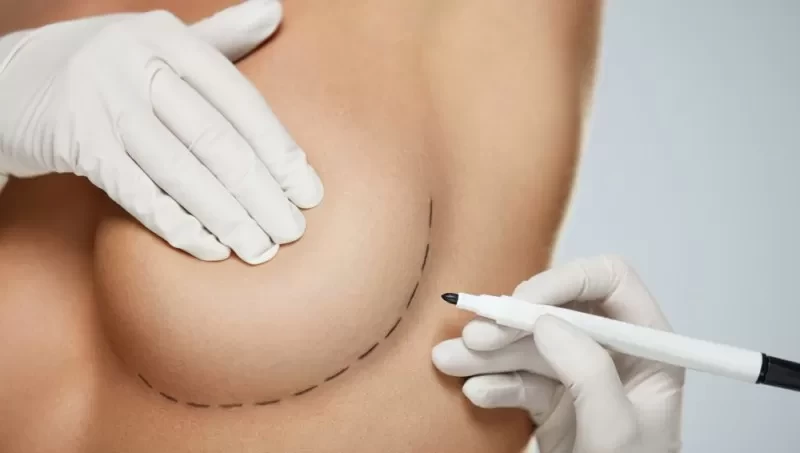TrustMed Clinic : Breast Augmentation Surgery In Turkey: Comprehensive Guide and Latest Trends

Breast augmentation surgery, also known as mammoplasty, is one of the most popular cosmetic procedures worldwide, and Turkey has emerged as a leading destination for individuals seeking this transformative surgery. In this comprehensive guide, we'll delve into breast augmentation surgery in Turkey, exploring the latest trends, advanced techniques, patient considerations, and more.
Understanding Breast Augmentation Surgery
Breast augmentation surgery involves the enhancement of breast size and shape using implants or fat transfer techniques. It is commonly sought by individuals looking to achieve fuller, more symmetrical breasts, address asymmetry, or restore breast volume lost due to factors such as pregnancy, weight loss, or aging.
Advanced Techniques and Technologies
Breast augmentation surgery in Turkey uses state-of-the-art techniques and technologies to ensure safe, effective outcomes. Surgeons may utilize advanced imaging technology to assess breast anatomy and plan the procedure with precision. Additionally, innovations such as high-cohesive silicone gel implants and 3D imaging systems allow for personalized treatment approaches and natural-looking results.
Popular Procedures and Trends
Turkey offers a wide range of breast augmentation procedures tailored to meet the diverse needs and preferences of patients. Some of the latest trends in breast augmentation surgery include:
- Customized Implant Selection: Surgeons now offer a variety of implant shapes, sizes, and materials to achieve personalized results that complement each patient's body type and aesthetic goals.
- Fat Transfer Augmentation: Fat transfer techniques involve harvesting fat from donor areas of the body, purifying it, and then injecting it into the breasts to enhance volume and shape. This approach offers a natural alternative to traditional implants.
- Dual-Plane Augmentation: This technique involves placing implants partially beneath the chest muscle (dual-plane placement), which can provide more natural-looking results and reduce the risk of complications such as capsular contracture.
Preparing for Surgery and Recovery
Before undergoing breast augmentation surgery, patients will undergo a comprehensive consultation with their surgeon to discuss their goals, medical history, and treatment options. Pre-operative evaluations, including imaging studies and blood tests, may be conducted to ensure the patient's candidacy for surgery. During recovery, patients will receive post-operative instructions to promote healing, minimize discomfort, and optimize results. It's crucial to follow these guidelines closely and attend all scheduled follow-up appointments for monitoring and support.
Possible Risks of Breast Augmentation Surgery
Breast augmentation surgery carries several potential risks, including:
- Anesthesia risks
- Breast implant-associated cancers: These include anaplastic large cell lymphoma (BIA-ALCL) and very rare cancers like squamous cell carcinoma (BIA-SCC) in the capsule around the implant.
- Bleeding
- Changes in nipple or breast sensation
- Fluid accumulation (seroma)
- Formation of tight scar tissue around the implant (capsular contracture)
- Hematoma
- Implant leakage or rupture
- Infection
- Persistent pain
- Poor scarring
- Possibility of revision surgery
- Wrinkling of the skin over the implant
- Incorrect positioning of the implant
Your plastic surgeon will discuss these and other potential risks with you before you give your consent for the surgery. It’s crucial to address all your concerns and questions directly with your surgeon.
Breast Implant Safety
FDA-approved breast implants undergo rigorous testing to ensure they are safe and effective. Most people with breast implants do not experience serious complications. However, risks still exist, such as:
- Breast implant-associated anaplastic large cell lymphoma (BIA-ALCL)
- Breast implant-associated squamous cell carcinoma (BIA-SCC)
- Breast implant illness (BII): Some patients report systemic symptoms like fatigue, "brain fog," muscle or joint pain, and rashes.
If any complications arise, it is essential to consult a board-certified plastic surgeon promptly. Similarly, if you decide to have your implants removed for any reason, speak with your surgeon.
Other Important Considerations
- Longevity: Breast implants are not guaranteed to last a lifetime, and future surgery may be needed to replace one or both implants.
- Regular check-ups: Regular examinations are necessary to monitor your breast health and the condition of your implants.
- Screenings: The FDA recommends screening your implants with MRI or ultrasound five to six years after silicone implant placement and every two to three years afterward.
- Life changes: Pregnancy, weight loss, and menopause can affect the appearance of your augmented breasts over time.
Even if you don't have concerns about your implants, routine exams and screenings are essential. They help ensure your implants are intact and can detect issues like implant rupture or silicone leakage. While some women with ruptured implants experience symptoms, others do not, making these routine checks critical.
In conclusion, breast augmentation surgery in Turkey offers individuals the opportunity to enhance their confidence, self-image, and quality of life through safe, effective procedures performed by skilled professionals. With advanced techniques, personalized treatment approaches, and a commitment to patient satisfaction, Turkey remains a premier destination for breast augmentation surgery. Whether seeking a subtle enhancement or a dramatic transformation, patients can trust in the expertise, innovation, and excellence of Turkey's cosmetic surgery industry.






